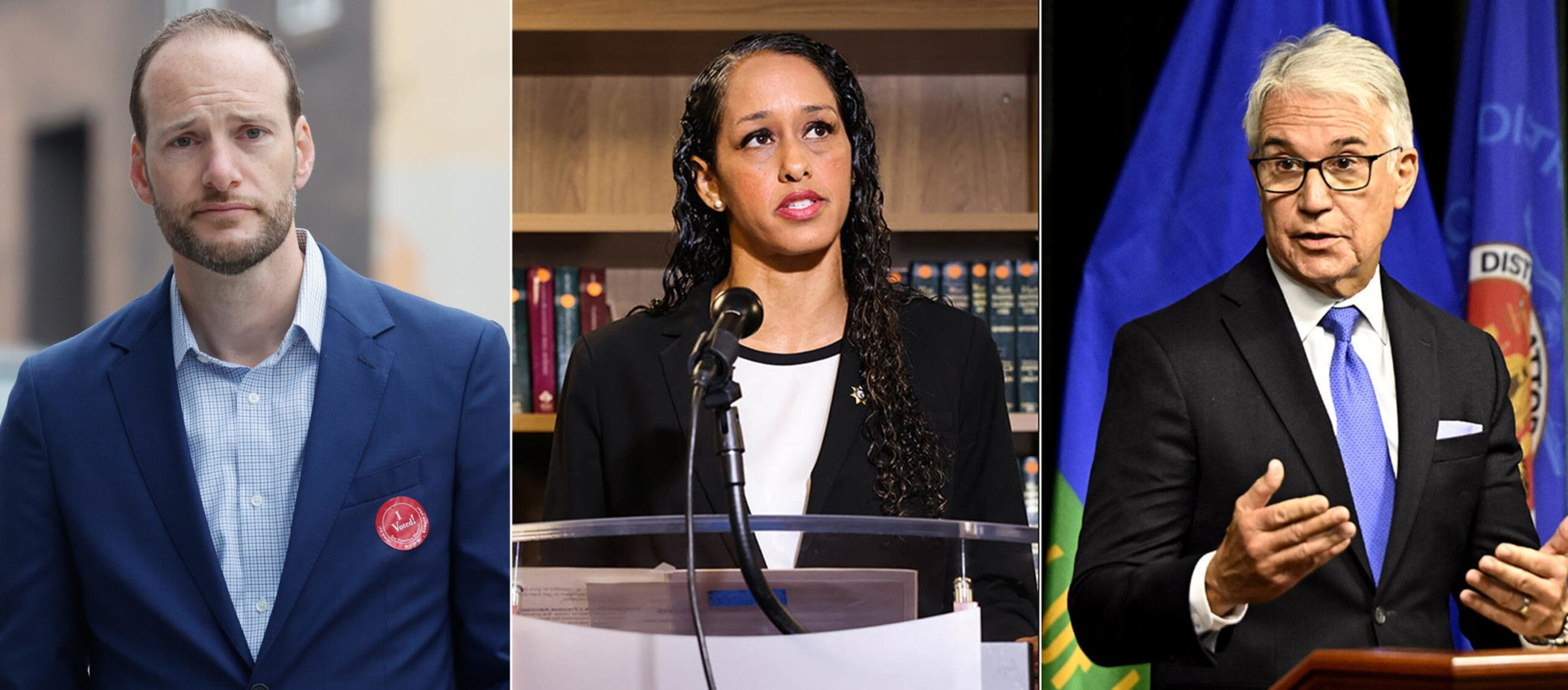It was a first for San Francisco and a litmus test for police accountability nationwide: the prosecution of a police (opens in new tab) officer for killing someone in the line of duty.
So it came as no surprise that outrage ensued when District Attorney Brooke Jenkins dropped charges against former San Francisco police officer Christopher Samayoa.
Now, as the state decides what to do with the case, insiders have come forward to poke holes in the DA’s claim that her progressive predecessor Chesa Boudin gave her no choice but to end prosecution for the 2017 killing of Keita O’Neil. In explaining the decision last month, Jenkins accused Boudin of pressuring staff to build a case for his own political gain.
She based the assertions in part on interviews with investigators who spoke about deliberations behind the charging decisions. But transcripts of those interviews obtained by The Standard make the internal disagreements seem more routine than the DA seemed to suggest.

Internal disputes
Andrew Koltuniak—the final investigator to handle the Samayoa case under Boudin who also worked for months under Jenkins—said it’s a cheap shot to question the integrity of the unit in charge of prosecuting police.
“To say that it’s politically charged is really insulting because of the detail that we looked at with these cases,” said Koltuniak, who has since left the DA’s Office.
“We always expected accusations of politics. It wasn’t a willy-nilly, ‘Let’s get a list of all the cases in the media and prosecute those cops.’”
In fact, many in the Independent Investigations Bureau (IIB), the unit tasked with investigating police misconduct, were hyperaware that Boudin’s promise to hold cops accountable invited scrutiny over every case it handled, Koltuniak said.
With that in mind, the unit took a conservative approach. Ultimately, just three of the 38 police shootings reviewed under Boudin led to any charges—namely, against Kenneth Cha, Christopher Flores and Samayoa. In almost all other high-profile shootings—like those that killed Mario Woods, Luis Góngora Pat and Alex Nieto—no charges were filed.
But the evidence was clear with Samayoa, Koltuniak said.
“The elements of the crime he was charged with are present, so it would be irresponsible not to charge him,” he told The Standard.

The team that handled the Samayoa matter under former DA George Gascón reached the opposite conclusion.
John Alden led police prosecutions for Gascón when the case first came to the unit in 2017. He also thought Jenkins’s rationale for dismissal missed the mark—but for an entirely different reason than Koltuniak’s. As Alden sees it, Jenkins could have simply dismissed the case instead of muddying the waters by bringing up the internal debate about its merits.
“Clearly, Mr. O’Neil should not have been shot,” Alden said.
Yet that doesn’t make the shooting illegal, per se.
“I can’t figure out, as a lawyer, how anyone in Chesa Boudin’s administration could have thought of how they could prosecute this case under the law,” Alden said.
Alden said Jenkins could have followed the path mapped out two administrations ago, using a guidepost in state law that lets cops shoot fleeing felons thought to be armed. Gascón left office without filing charges.

Troubled Investigators
The political pressure Jenkins cited is also less clear in the transcripts.
In a January interview with Jenkins’s staff, investigator Dan Lundberg expressed doubts about the Samayoa case and unease when former IIB lawyer James Conger told him to “find a path” to prosecution.
In a transcript, Lundberg equivocates when asked what exactly was said to make him feel pressured.
“And Conger, other than saying he was assigned to ‘find a path,’ did not say anything more about that specific sentence?” Assistant District Attorney Julius DeGuia asked in the Jan. 10 interview.
Lundberg responded: “No, and it was nebulous. I acknowledge that. You know that I’m going to say Conger is a very professional attorney […] very thorough and professional, and I’ll leave it at that.”

In his own interview on Jan. 11, Jeff Pailet—who worked with Lundberg and is now suing the city for his dismissal by Boudin—echoed the sentiment about feeling pressured to prosecute.
Another investigator who Jenkins said told her had doubts about the case, ultimately signed the arrest warrant for Samayoa and later denied having misgivings about the case.
What the transcripts make clear is that the internal pushback was less cut-and-dry and the investigators less convinced about discharging the case than Jenkins made it seem.
Jenkins’s office declined to comment for this story. But it said it stands by its decision to drop the charges and leave the rest up to the AG.
